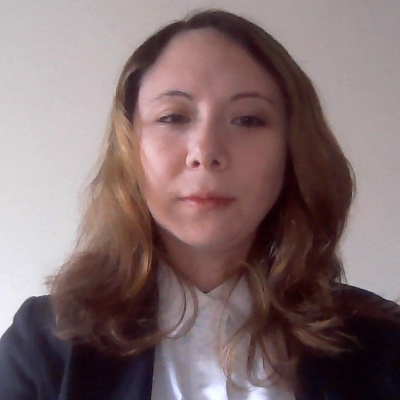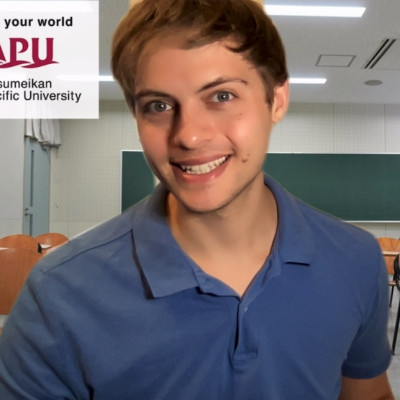Sessions / Location Name: Room 01
Virtual Location
Virtual: You cannot enter virtually via this page. Click on the titles of individual presentations or go to the Live Page
Synchronous Online Flipped Learning Approach – SOFLA® #1905
The Synchronous Online Flipped Learning Approach, or SOFLA, (Marshall, 2017; Marshall & Rodriguez Buitrago, 2017; Marshall & Kostka, 2020) combines two separate learning pathways that, in combination, can result in robust instruction: the Community of Inquiry (CoI) framework for online teaching (Garrison, Anderson, & Archer, 2000) and flipped learning (Bergmann & Sams, 2012). The presenter takes participants through the eight steps of SOFLA: (1) Pre-Work; (2) Sign-In; (3) Whole Group Application; (4) Breakouts; (5) Share-Out; (6) Preview and Discovery; (7) Assignment Instructions; and (8) Reflection. Guidelines, rationale, and caveats for each step are provided, with examples from the presenter’s classroom.
Using Corpora to Create Academic Writing Assignments #1908
Quite often universities require students to write academic essays that students might not be prepared for. Having an assignment sheet with grammatical patterns and commonly used words makes it easier for students to write the required essays. The workshop will focus on creating an assignment sheet for an academic writing topic: this includes vocabulary, collocations, colligations, and patterns. The vocabulary list, collocations, colligations, and frames would come from corpora. It is not necessary to have prior knowledge on how to do searches using corpora as they will be explained in the workshop step by step.
Incorporating International Language and Culture Exchanges Into Your Classes #1901
Since 2015 over 25,000 students from 25 countries have participated in the IVEProject, an international online exchange where students use the English they are studying in class to interact with peers around the world. The workshop will showcase the project: the research showing its benefits to linguistic, intercultural and communicative competence; the ways it can be incorporated into your syllabus; and the joy it can bring to students who participate. If you want your students to use the English they are studying in class to interact with others around the world, come to this workshop. It is easy and free-of-charge.
Facilitating Engagement and Interactivity With a Virtual Lesson Platform #1899
Research has shown that Nearpod promotes active learning through its ability to facilitate collaborative participation between students, teachers, and lesson content (Amasha et al., 2018, Hakami, 2020). My workshop will showcase how Nearpod can be used for effective discussions, reading activities, vocabulary activities, student-paced assignments, informing future instruction through its post-class reports feature, and more. Teachers will receive opportunities to test the functions as well. Finally, I will share the results of a quantitative survey of student self-reported perceptions of Nearpod, which indicated that students felt an overall positive effect on their motivation and interaction in their English classes.
Strategies and New Perspectives for Teaching Academic Writing Online #2342
Teaching academic writing online is hard to do well. This workshop coalesces around three key pedagogical tactics for teaching academic writing: scaffolding, chunking, and interrogative methodology. The workshop lays out strategies for combining these approaches and provides an overview of digital technologies that can aid in the teaching of English-language academic writing at the college or university level. This workshop reflects on past practice and offers new perspectives for an online or hybrid educational future.
Can Reading Lead to Better Writing? - JALT2021 Bill Balsamo Asian Scholar Presentation #2387
ELT experts believe that reading can help improve student writing. However, experience tells us that this is not always the case. Many L2 readers continue to find writing challenging. In my talk, I offer practical tips on what language teachers can do to help good L2 readers become more proficient L2 writers.
Willy Renandya is the JALT2021 Bill Balsamo Asian Scholar: In 1988, JALT started an Asian Scholar Program through which teachers from other Asian countries are hosted in Japan, meet with teachers here, and give presentations at the annual international conference as well as at local chapters all over Japan on the Four Corners Tour program. In 2008 the program was renamed the Balsamo Asian Scholar Program in honor of Bill Balsamo, president of the Himeji Chapter and founder of the Teachers Helping Teachers SIG. Over the years, teachers from many countries have visited Japan on this program.
The Fundamentals of Reading: New Perspectives for the Future of ER #2348
Sponsored by the Extensive Reading SIG
Extensive reading (ER) research provides evidence for gains in fluency, vocabulary, and motivation. Practitioner reflections show that ER is underpinned largely by Krashen’s comprehensible input hypothesis and a whole-word approach. However, what about learners for whom ER is not working? To introduce a new perspective, this presentation highlights three fundamentals—the science of how we read, individual differences, and bottom-up reading processes—and invites a query into the future of ER and reading research.
COVID-19: A Disruption to Reflect on Our Wisdom of Practice in ELT #2341
Year 2020 will go down in history as the year that gave language teaching an almighty thwack in the head. In haste, we dramatically altered the ways we went about our routines, moving online to teach remotely. In a fundamental sense, 2020 has forced us, explicitly or implicitly, to re-examine our language teacher wisdom of practice. This workshop provides a framework and initial opportunity to articulate these changes in our orientation to language and learning.
The Michele Steele Best of JALT Awards Ceremony and Social #2484
The Michele Steele Best of JALT Awards is a program that was started to honor the speakers who make JALT events such valuable experiences. This year's awards are for events and publications from the 2020 calendar year.
Each year, the JALT chapters and SIGs each have the option of naming a speaker (or author of an article) from the previous calendar year as their Best of JALT award recipient. While this award had been around for many years, Michele Steele renewed the award and brought it properly into the limelight in 2010 by creating a ceremony to be held at JALT's annual international conference. Over the years, this Best of JALT Award Reception has grown into the main social event of the conference. At the JALT2020 Conference, the Executive Board of JALT unanimously voted on changing the name of this award to The Michele Steele Best of JALT Award in honor of Michele's inspiring work and devoted love of honoring the JALT members who are being recognized by this award. Sadly, Michele passed away in December 2020 after a long battle with illness, and will be greatly missed at this year's event.
Please join us for the Michele Steele Best of JALT Awards to not only honor the award recipients, but also to raise a glass in remembrance of Michele Steele, a long-time officer and volunteer of JALT.
Interest Pursuit: Choosing and Using Narrative Texts #2339
Learners reading narrative texts has a long tradition in second language classrooms. We have students read, answer some questions, and then talk to them about prioritized language points. Missing from this equation is agency and choice for teachers and learners, particularly when it becomes clear narrative texts have deep and unpredictable riches to offer for concepts and language. This workshop takes up questions of, and alternatives for, text selection and use by teachers and learners.
Student Forum #2360
The Graduate Student Subcommittee (GSS) is for people who currently study or are thinking about studying at university. We provide a forum for people to talk about their experience of student life, and we offer this event to help you make connections and share your ideas and concerns. We want to help all students, and we are looking for ideas about how we can do this. Anyone interested in joining or helping us is welcome.
Teaching Storytelling in Casual Conversation #2346
Most of our students find it necessary to engage in casual conversations, either now or at some time in the future. How do these casual conversations work? What is their purpose? Is there more to casual conversation than simple chit chat? In this presentation I will provide a framework for understanding storytelling in casual conversation from a genre point of view, and I will suggest some ideas for the language classroom.
Reducing Presumptions #2404
The goal of this workshop is to examine the presumptions we make about other people, particularly people of another race, ethnicity or nationality, but also of other sexual orientation, professions, political affiliations, even age and weight. All come to bear on how we choose to interact with said person. During this session we will: 1- Define presumption 2- Attempt to identify our presumptions 3- If possible, ascertain the root / source of our presumption 4- Ascertain whether said presumption is problematic or not. 5- Establish / Uncover / Utilize Practical ways to reduce our use of presumptions (if it’s called for) Likely we all have done some version of this in our self-assessments, but I’ve found, even in myself, as I’ve conducted this workshop at universities here in Japan, that many problematic presumptions, particularly ones acquired in our formative years, tend to be resilient and will persist to wreak havoc often under the radar. So, let’s pop the hood and see what we see.
Diagnosing Reading in a Foreign Language: How Do We Get There? #2343
This workshop introduces a framework for diagnosing foreign language reading skills (Alderson et al., 2015). The session will cover the foregrounding principles and stages in diagnostic testing: observation, initial assessment, hypothesis testing, decision making and feedback. By looking at individual student differences and bottom-up reading processes, teachers can identify learner strengths and weaknesses to support them in reading challenges and development opportunities. Tasks from various diagnostic tools will be trialed through experiential learning activities.
Socio-Emotional Competencies for Language Learning and Teaching #2414
This workshop will focus on reviewing theories of emotional intelligence and social intelligence, how these have been applied in language education (Gkonou & Mercer, 2017, 2018; Mercer & Gkonou, 2017) and how socio-emotional competencies can be used in contemporary classrooms.
Reflections on the Pandemic: Coming Back Stronger #2340
The COVID-19 pandemic challenged educators professionally. This session reflects on how the pandemic provided initially unwelcome, yet ultimately rewarding, professional development opportunities, especially regarding technology. This session explores how to improve in-person teaching practices with these newly acquired expertise. Using differentiated instruction theory (Tomlinson, 2005), we will focus on repurposing the methods and materials developed for distance learning to scaffold learning more successfully, assess progress more efficiently, provide more effective remediation, and encourage learner agency.
Literature Is a Moveable Feast for Language Teachers and Learners #2344
Reading books remains the most reliable and enduring means for learners to get second language input and experience. Beyond this technical (albeit important) characterization, reading narrative literature brings to learners a feast of culture, enjoyment, ideas, and insight. These gifts extend to second language teachers, as these rich texts offer many approaches to instruction. In this talk, the presenter will detail practical ways teachers can guide learners through the many compelling narrative texts available today.
Best Practices of Teaching Academic Writing Online for the New Normal #2347
This presentation’s focus is on best practices for teaching academic writing based on formative and summative feedback in an integrated writing process and reflection on standard writing pedagogy. By suggesting how these strategies of the past can be reframed in a digital context and combined for both asynchronous and synchronous learning opportunities, it explores the new normal in a post-COVID world where online learning, or at least hybrid learning contexts, are here to stay.
Facilitating an Online Community of Practice #2408
This workshop explores the use of an innovative new online network to create a community of practice of teachers and practitioners working in the fields of Global Englishes and English Medium Instruction (EMI).
Panel Discussion and Closing Ceremony #2489
The end of the show, and we will welcome some of our plenary, featured, and invited guest speakers to offer some final words and reflections on the conference. Audience participants will be encouraged to ask questions and offer insights of their own. After the panel discussion we will hear about what is to come for JALT2022!





















